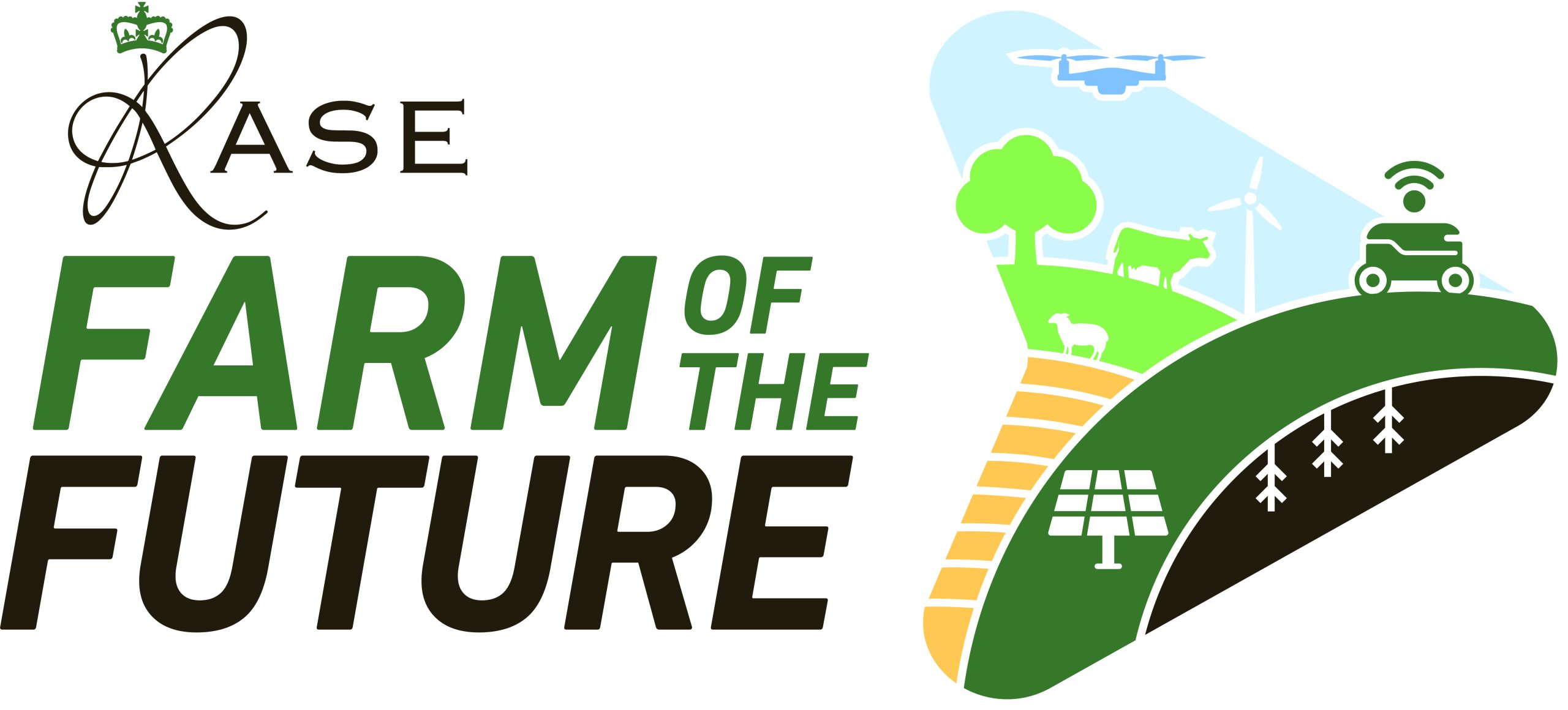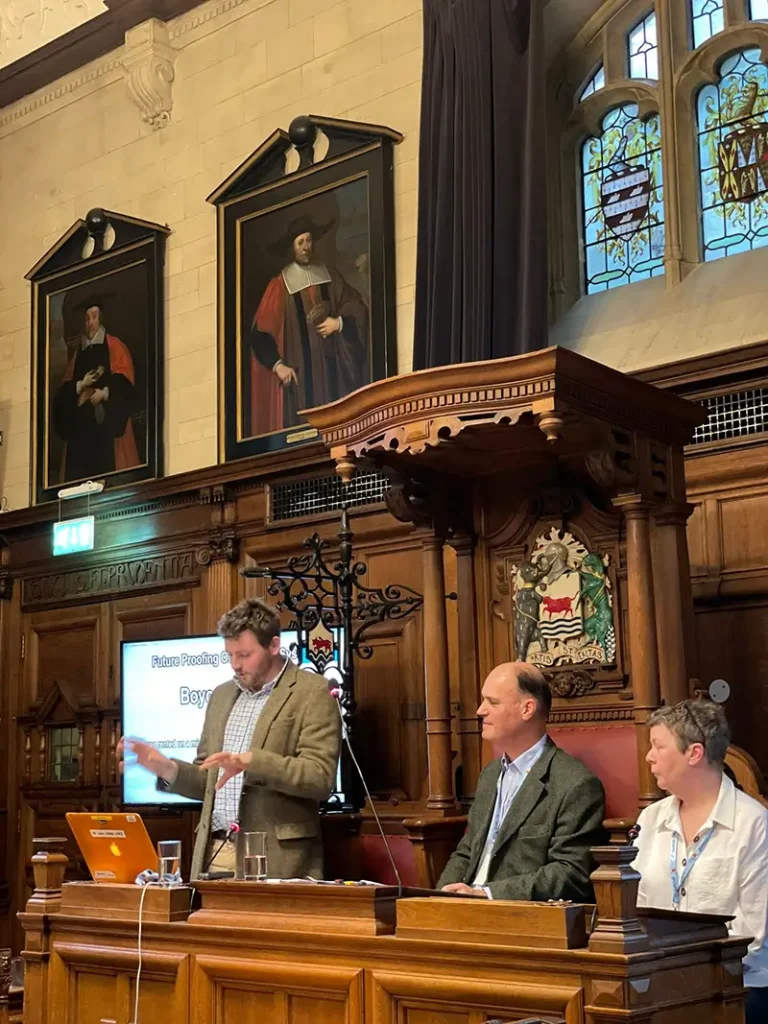On Thursday 4th January, 2024, RASE held a panel discussion at the Oxford Real Farming Conference, which was titled ‘Family farming decisions: Bringing together old and new thinking’. The session delved into how two farming families are making decisions to increase the resilience of their farm businesses.
The session was chaired by Philip Gready, chair of the RASE board of trustees. The speakers were Lucinda and Billy Lewis from Boycefield Farm in Herefordshire, and Tony, Edward and Thomas Gent from Gentle Farming. Both businesses have adopted regenerative farming practices to minimise financial risk and improve the resilience of the farm business.
Farm profile – Boycefield Farm
Billy and Lucinda are working with nature to produce pedigree Hereford cattle, from the oldest family run herd of Hereford cattle in the world, as well as sheep and cereal crops. They started introducing some regenerative farming practices to the mixed farming business six years ago, and this stepped up as soon as Billy returned home from Harper Adams University in 2020.
They practice mob grazing of the cattle on both the permanent pasture and the temporary herbal leys in the arable rotation. Using an electric fencing system, they move the cattle onto a new area every couple of days, allowing them to eat a third, leave a third and trample a third of the residue into the soil. Crucially, this system of grazing has allowed longer rest periods of 30 to 50 days, which has enabled increased sward diversity and improved soil health.
Farm profile – Gentle Farming
The Gents farm 800 hectares on the south Lincolnshire and Cambridgeshire border. They started farming using regenerative practices such as min-till techniques 16 years ago.
The farm now achieves 90% less soil surface disturbance, uses 40% less artificial inputs, maintains 100% soil cover and provides 10% of land as areas for nature as woodland, hedgerows and meadows. The cost of production is now around 27% less than a conventional farming system, while yields have been comparable, meaning profitability per hectare has increased.
The farm has started selling crops under its own Gentle Farming brand, so food brands can have the opportunity to buy direct from a regenerative farming business.
Family farming – decision making
Both farms have made the decision to use regenerative farming practices to increase the resilience of their business, as a system which requires less inputs reduces the financial risk.
When discussing how different decisions are made, it was clear that for day-to-day management decisions, it is important for someone to have autonomy over these. For the Gents, the day-to-day management of the farm is now Edward’s responsibility, with ideas and input coming from Tony and Thomas.
Although it’s not something they regularly do, all the speakers agreed it could be worth having a meeting chaired by someone completely neutral from outside the family occasionally, to facilitate a more formal discussion about future farm decisions.
They also discussed the importance of ‘knowing your why’. When farming conventionally, it can be very reassuring to have an agronomist come out and advise on exactly what a crop needs and to take those actions. Billy and Lucinda shared that when farming with regenerative principles there can be more to think about and answers can be less clear-cut, so remembering why they are doing it is important.
Do you know your why? Or do you have another approach to farm decision making? If you have ideas to share that would be of value to the farming community, get in touch with [email protected] for a chance to be included in our newsletter or blogs.

